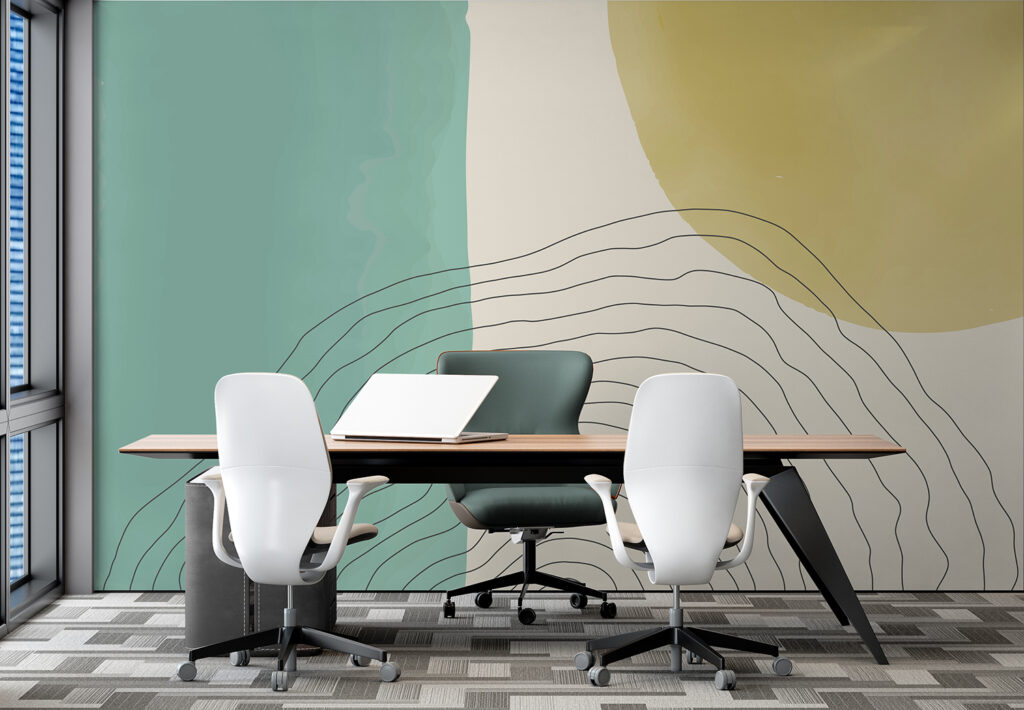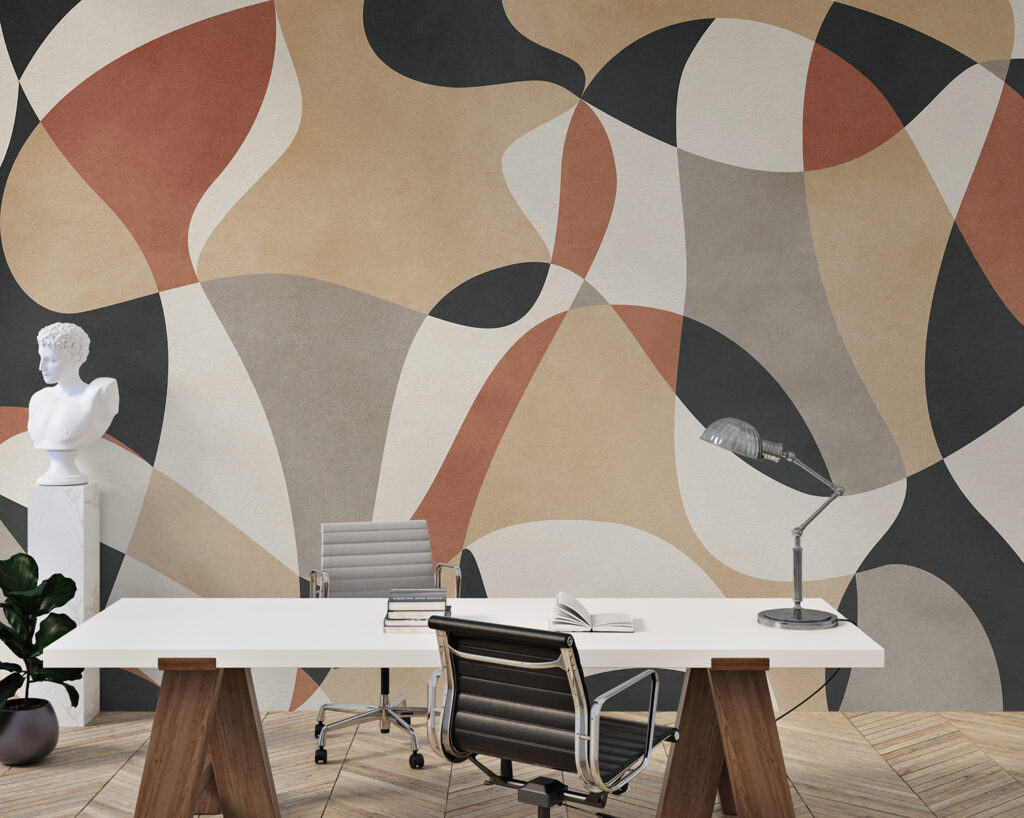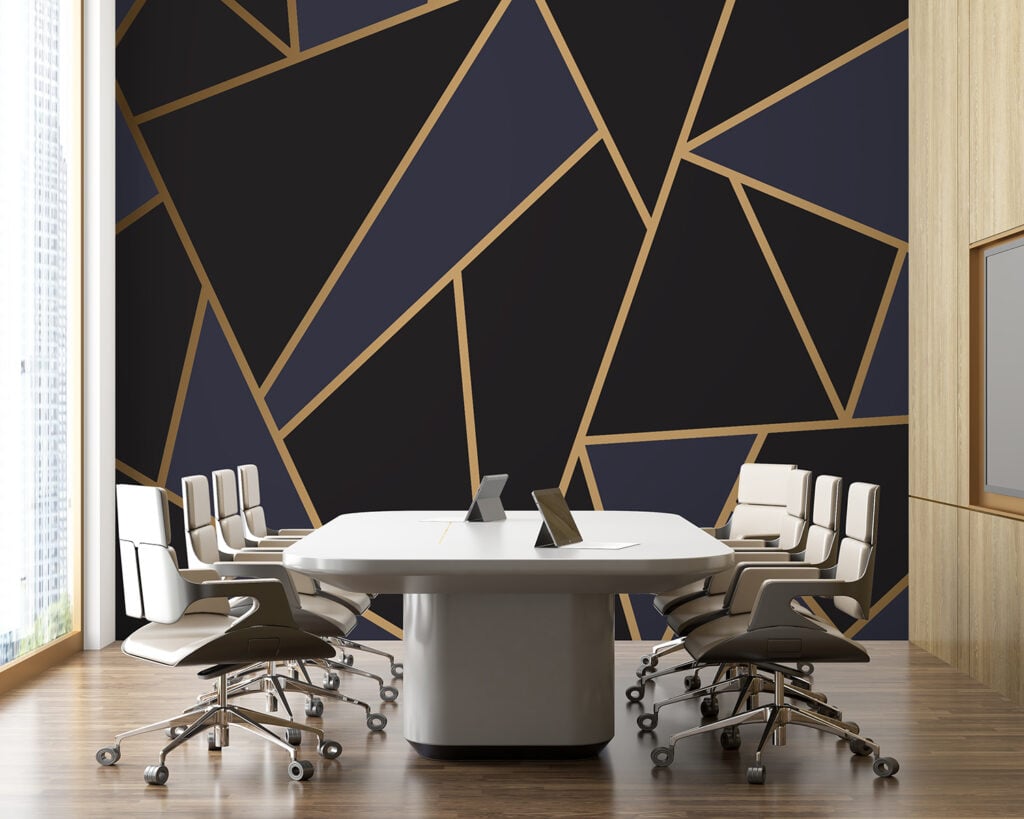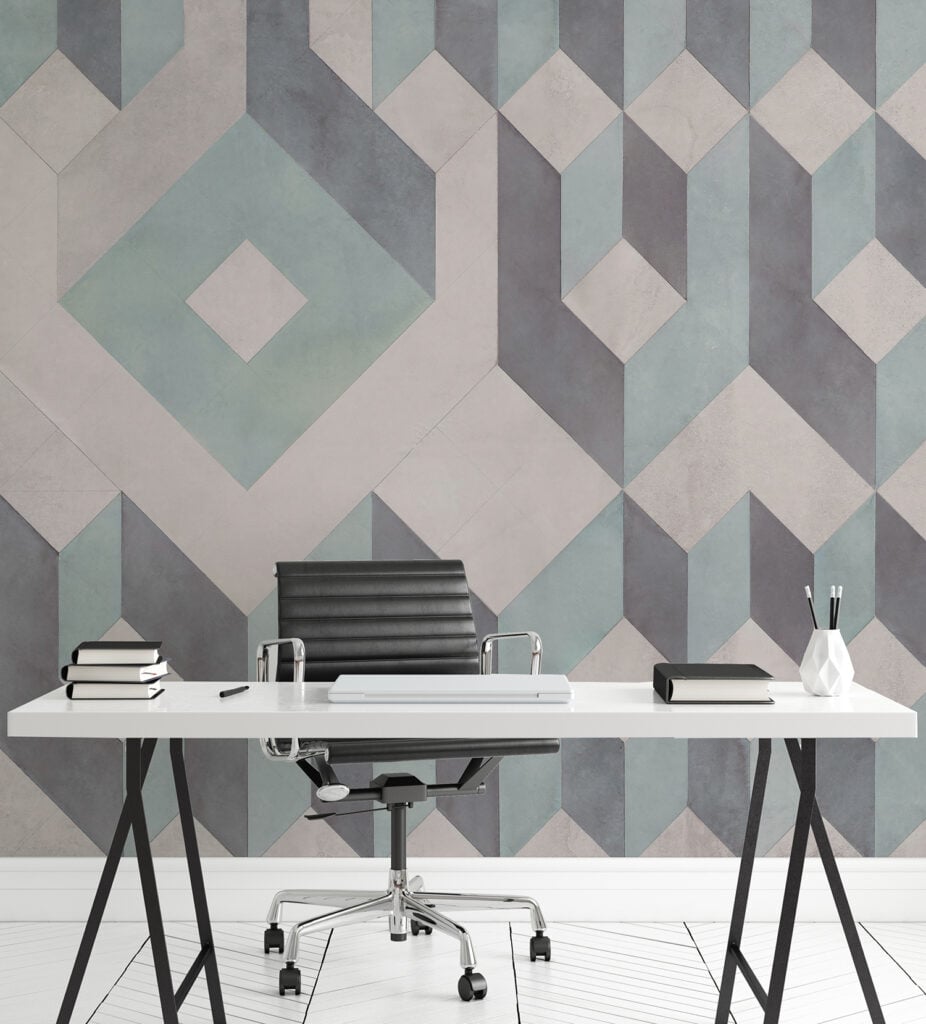
How to Choose the Perfect Wallpaper for Home Office
GiffywallsShare
Choosing the Right Wallpaper for Home Office
As more and more people transition to remote work, creating an inspiring and efficient home office has never been more important. One crucial element that can significantly influence the aesthetics and mood of your workspace is the choice of wallpaper. In this blog post, we'll guide you on how to select the perfect wallpaper that complements your home office style and boosts your productivity.
1. Understand Your Space Wallpaper for Home Office

Before you even begin to browse through wallpaper designs, it's essential to have a comprehensive understanding of your workspace. Each office space is unique, and the characteristics of your particular room can significantly impact how your chosen wallpaper will look and feel. Here are a few key parts to consider:
Size of the Room
The size of your office space plays a crucial role in determining the type of wallpaper that will work best. For smaller rooms, you might want to consider light-colored wallpapers or those with small, subtle patterns. These can help make the room appear larger and more open. On the contrary, if you have a large office, you have more freedom to experiment with darker hues or bolder patterns, which can add a sense of depth and warmth to the space.
Amount of Natural Light
The level of natural light your office receives can significantly impact how your nature wallpaper looks throughout the day. Rooms with lots of natural light can handle darker or more vibrant wallpapers, as the sunlight can prevent these bold choices from overpowering the room. However, if your office lacks natural light, sticking to lighter colors can help brighten up the space.
Office Layout
Consider the layout of your office wallpaper, including where the windows, doors, and furniture are positioned. If there's a specific wall that's more visible or serves as the focal point, you might want to accentuate it with a striking wallpaper design. If your office has awkward corners or architectural features, clever use of wallpaper can help enhance these unique elements rather than hide them.
Wall Conditions
It's also important to consider the condition of your walls. If they're smooth and well-finished, you have a broad range of wallpaper options to choose from. However, if there are imperfections or rough patches, textured wallpapers can be a great choice to disguise these flaws and add an extra layer of depth and sophistication to your office space.
2. Reflect on Your Work style.

Understanding your work style is key to selecting wallpaper that not only pleases your aesthetic taste but also enhances your productivity and focus. Here's how:
Type of Work
Consider the nature of your work. For roles that involve rigorous analytical thinking, consider wallpapers with a minimalist design and soothing colors to minimize distractions. On the other hand, if you're in a creative field like writing, graphic design, or content creation, more vibrant and dynamic wallpapers may stimulate creativity and inspire new ideas.
Work Mood
Think about the mood that helps you work most effectively. If a calm, tranquil environment helps you concentrate better, consider wallpapers in cool hues like blues and greens. If you thrive in an energetic and vibrant atmosphere, opt for wallpapers in bold colors like red, orange, or yellow.
Personal Preference
Ultimately, your wallpaper should reflect your personality and taste. If you love the outdoors, consider a wallpaper pattern that brings elements of nature into your workspace. If you're an aficionado of modern art, an abstract wallpaper pattern might provide the stimulating environment you need.
3. Choose the Right collar.

Color psychology plays a significant role in setting the atmosphere of a room. When choosing color wallpaper for your office, consider how different colors might influence your mood and productivity.
Blue wallpaper
Blue is known to create a sense of calm and stability, reducing stress and promoting concentration. It's an excellent choice for busy, high-pressure workspaces.
Green wallpaper
Green is a restful color that helps reduce anxiety and encourages growth and development. It's perfect for a home office where you're looking to foster learning and personal development.
Yellow wallpaper
Yellow stimulates positivity, creativity, and mental activity. It's a great color choice for creative professionals or anyone looking to bring a sense of energy and optimism to their workspace.
Neutral Tones
Neutral tones like white, grey, and beige create a serene, focused environment. They're an excellent backdrop for any office space, as they allow for flexibility in decor and complement most other colors well.
4. Consider the pattern Wallpaper for Home Office.

Wallpaper patterns can significantly impact the overall ambiance and focus of your office space. When considering patterns, keep the following in mind:
Geometric Patterns
Geometric wallpaper patterns offer a sense of order and efficiency, making them popular choices for modern, minimalist home offices. They are excellent at promoting a sense of structure and focus.
Nature-Inspired Patterns
Nature-inspired patterns can bring a soothing, organic feel to your workspace. This can reduce stress, promote calmness, and help you feel more relaxed and focused.
Abstract Patterns
Abstract patterns can be invigorating and thought-provoking, perfect for sparking creativity and thinking outside the box. They're excellent for those in creative professions who need a regular dose of inspiration.
5. Test Before You Commit.

Wallpaper is a significant investment of both time and money, so it's essential to be sure about your choice. Here are a few ways to test wallpapers before making a commitment:
Order Samples
Many wallpaper companies offer small sample pieces. Order samples of your top choices and put them up in your office space. This will give you an idea of how they'll look on a larger scale and in your specific room's lighting.
Live with it.
Once you've put up the samples, live with them for a few days or a week. Notice how you feel about them at different times of the day and how they look under different lighting conditions. You might love wallpaper in the morning sunlight but find it less appealing under artificial light in the evening.
Consider the Big picture.
While evaluating the samples, also consider the rest of your office decor. The wallpaper should complement your furniture, window treatments, and other design elements in the office. By testing, before you commit, you'll ensure that your choice enhances the overall aesthetic and functionality of your workspace.
Choosing the perfect wallpaper for walls in your home office is a balance of understanding your space, reflecting on your work style, choosing the right color and pattern, testing before committing, and considering functionality. With these tips in mind, you're well on your way to creating a home office that's not only beautiful but also boosts your productivity and work satisfaction.
FAQS FOR OFFICE WALLPAPER
1. Which wallpaper is best for the office?
The best wallpaper for an office depends on various factors such as the office's overall aesthetic, the nature of work, and the preferences of the employees. However, generally, it is recommended to choose wallpapers that are subtle, professional, and not overly distracting. Neutral colors, geometric patterns, or textured designs can create a calm and sophisticated atmosphere.
2. How do I make my office look welcoming?
- Use warm and inviting colors on walls and furniture.
2. Incorporate comfortable and ergonomic furniture.
3. Add greenery with plants to create a natural and calming atmosphere.
4. Optimize lighting by maximizing natural light and using warm, soft lighting fixtures.
5. Display artwork or decor that reflects the office's personality and values.
3. What should I put in my office background?
When considering what to put in your office background, think about items that reflect your professional image and personal interests. Here are a few ideas:
- Bookshelf with books related to your industry or favourite novels.
2. Artwork or framed motivational quotes.
3. Plants or a small indoor garden.
4. Diplomas, certificates, or awards showcasing your achievements.
5. Personalized items like family photos or mementoes.